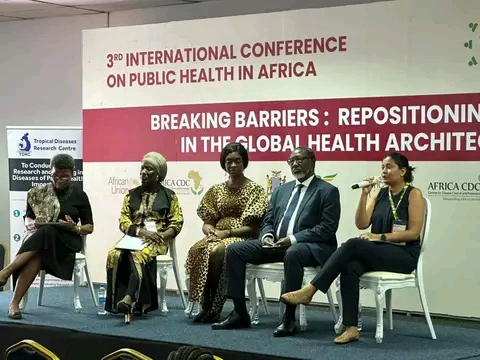Africa-Europe Partnership Launches Innovative Study to Enhance Emergency Response for Severe Malaria in Remote Rural Areas
Africa-Europe partnership, led by the Treatment and Diagnostics Research Centre (TDRC), has initiated a study to evaluate emergency response tools for severe malaria in highly isolated rural settings.
The project, known as the Severe Malaria Treatment with Rectal Artesunate and Artemisinin-based Combination Therapy (SEMA ReACT), aims to provide crucial evidence for interventions that can buy time for seeking further care for children with severe malaria in areas where health facility transfer is not feasible.
Partners involved in this initiative include the University of Antwerp, University of Kinshasa, and the National Institute of Medical Research in Dar-es-Salaam. The study focuses on the administration of artesunate rectal capsules to severely ill children who are unable to swallow medicine orally.
The lack of real-world evidence on appropriate actions for front-line health workers in remote contexts with no timely options for transferring patients to higher-level health centers is a significant challenge.
This clinical trial strives to address these challenges and provide practical solutions for those residing in highly isolated rural settings, where reaching a health facility in time is often a critical issue.
TDRC, along with Medicines for Malaria Ventures, co-hosted a side event at the ongoing CPHIA 2023 (Conference on Public Health in Africa) to shed light on the importance of equitable partnerships between key stakeholders in malaria-endemic countries and the global malaria community.
The event highlighted how such partnerships could serve as the foundation for sustainable research and development, as well as access strategies, ultimately contributing to the goal of malaria elimination.
Over 60 participants at the CPHIA event heard from a panel of experts, including Dr. Christine Manyando, TDRC Principal Scientific Officer.
Dr. Manyando stressed the significance of equitable partnerships in addressing issues related to the quality, affordability, and accessibility of research and development efforts aimed at alleviating the disease burden in the African continent.
This collaborative effort marks a significant step forward in the fight against malaria, showcasing the potential impact of international partnerships and research initiatives in addressing healthcare challenges in some of the world’s most isolated and underserved communities.
As the study progresses, it holds the promise of providing practical and effective solutions for emergency response to severe malaria in remote rural settings.



